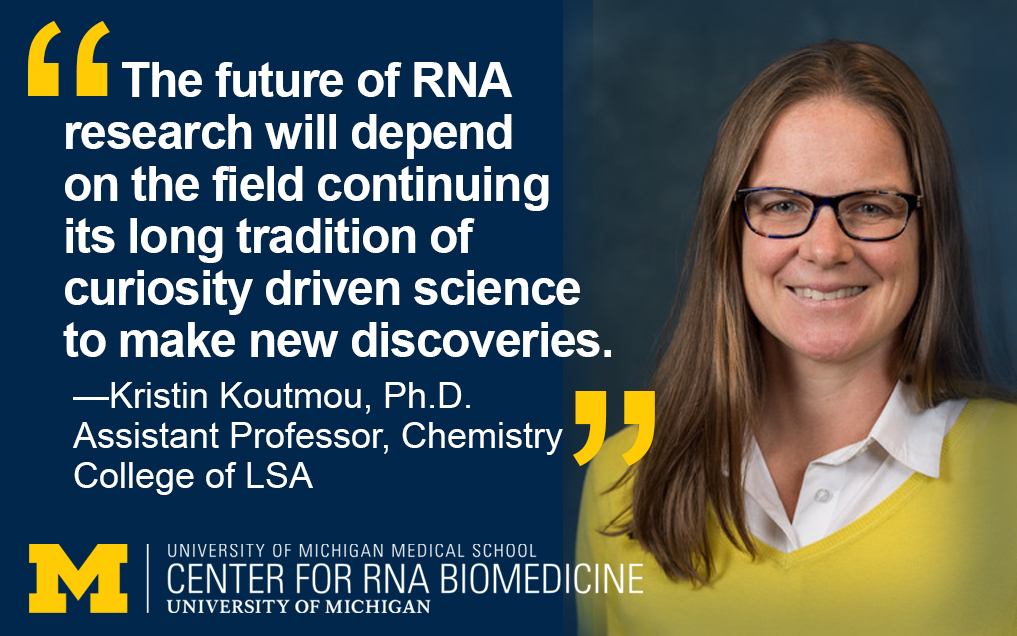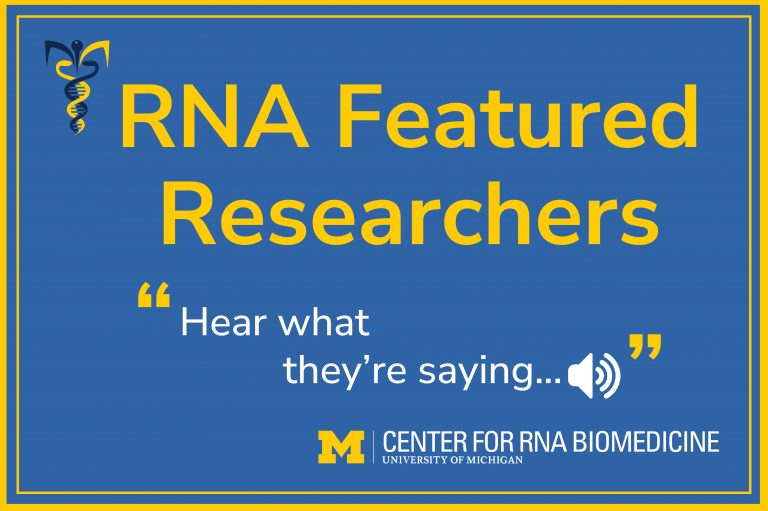RNA Featured Researcher – Kristin Koutmou, Chemistry

Kristin Koutmou
Assistant Professor
Chemistry, College of LSA
Website: koutmoulab.com
Twitter: @KoutmouLab
Cells face the daunting challenge of synthesizing the correct number of proteins at the right time with high fidelity. My lab studies how cells control the process of protein synthesis by the ribosome. We are developing and implementing analytical, biochemical, and biophysical approaches to generate a quantitative, mechanistic framework for understanding how mRNA sequence, peptide sequence, and RNA post-transcriptional modifications impact translation.
What is the role of RNA in your research?
Every aspect of our research focuses on RNA. My lab studies a large ribozyme, the ribosome, that uses RNA substrates (tRNAs) to decode an RNA template (mRNAs) in order to synthesize proteins.
• Who/what brought you to science?
I’ve always been curious about how things work, so science was a natural fit for my interests. However, I ended up studying Chemistry in large part because of my AP Chemistry teacher, Jon Bergmann. I was not planning to attend college and when he found out that I hadn’t applied to any schools in the late spring of my senior year, he reached out to an admissions officer and essentially got me admitted to the Colorado School of Mines. While I eventually finished undergrad at the University of Colorado at Denver, Mr. Bergmann’s active support set me on the path towards becoming a scientist.
• What brought you to the University of Michigan?
I completed my PhD at the University of Michigan with Prof. Carol Fierke and was drawn back to UofM as a faculty member because of the collaborative environment, excellent students, and fantastic research happening on campus.
• What advice would you give to students who’d like to get more involved in research?
Don’t be afraid to reach out to researchers that you are interested in working with. Also, once you are in a lab, be fearless in your willingness to learn new things and extend your curiosity beyond your field – read voraciously.
• Are there any opportunities for students to engage in your projects, currently or in the future? Yes
- What skills would they need? Students will preferably have taken physical chemistry and biochemistry courses (though this is by no means mandatory). Most importantly, students should have a strong interest in learning new skills, and a willingness to have to tinker (or fail forward) with experiments until they work.
- What could they expect to learn? It depends on the project, students can learn a wide variety of skills ranging from enzyme kinetics, to ribosome profiling and mass-spectrometry.
• What profession other than your own would you enjoy, or what is your favorite hobby?
If I were not a scientist I would likely be a teacher or work in an outdoor sports related industry. I enjoy reading, spending time with my kids, skiing, biking, hiking, swimming, camping and generally being outside.

